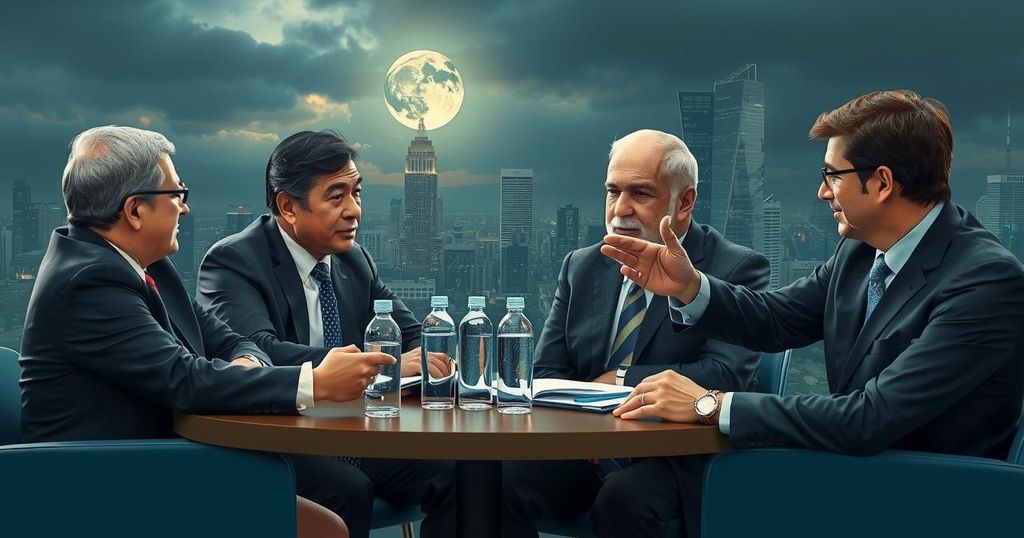COP29 Climate Talks Complicated by Ongoing Global Conflicts
During COP29, discussions highlighted how ongoing wars, particularly in Ukraine and Gaza, complicate climate negotiations. Activists emphasized the need for financial support for developing nations impacted by conflict-induced environmental crises. World leaders called for urgent collaboration to tackle the dual challenges of climate change and geopolitical tensions, acknowledging the significant impact of military conflicts on climate action efforts.
At COP29, the ongoing conflicts in Ukraine and Gaza were noted as significant obstacles in climate negotiations. Activist Nisreen Elsaim shared her personal account of fleeing civil war in Sudan, emphasizing the urgent need for successful climate strategies in vulnerable nations. As discussions progressed, developing countries sought financial assistance from wealthier nations, yet the destructive effects of war strained this imperative, diverting funds from climate efforts to military spending and exacerbating global instability. World leaders expressed concerns that geopolitical tensions and wars were hindering international cooperation vital for addressing climate change and achieving sustainable solutions. The summit underscored the interconnectedness of war, poverty, and climate change, highlighting the critical need for integrated global responses to these crises.
The backdrop of this year’s COP29 climate summit is shaped by the interactions between global conflicts and increasing climate vulnerabilities, particularly for developing nations. With escalating crises such as civil wars and geopolitical tensions, the ability of nations to unite and address pressing climate issues has become increasingly compromised. The consequences of war extend beyond immediate humanitarian crises to include profound environmental impacts, all while limiting available resources for climate action.
In summary, COP29 has revealed the complex interplay between climate change and global conflict. As demonstrated by personal narratives such as that of Nisreen Elsaim, the reality faced by those in climate-vulnerable regions is dire, necessitating international solidarity and cooperation. The summit highlights the urgent need for wealthier nations to increase their climate financing commitments, ensuring that the critical link between military spending and environmental degradation is acknowledged and actively addressed.
Original Source: apnews.com




Post Comment